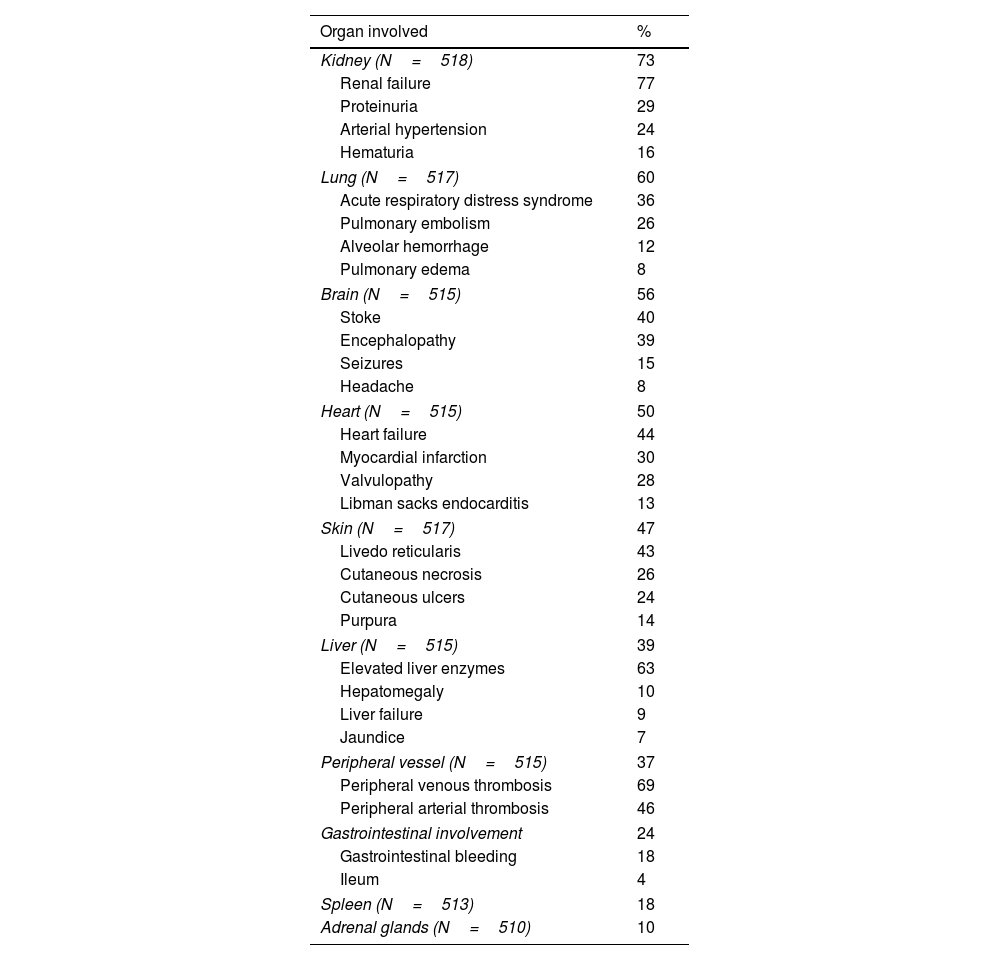
The catastrophic antiphospholipid syndrome (CAPS) is a rare life-threatening clinical condition that represents the most severe clinical presentation of the antiphospholipid syndrome (APS). It was first described in 1992 in a group of patients that presented with multiorgan involvement and microangiopathic features of APS. Most of the current knowledge of CAPS comes from the analysis of all cases collected at the “CAPS Registry” that was created in 2000 to perform studies on this condition. Most cases are triggered by a prothrombotic situation that leads to a multiorgan thrombosis and a cytokine storm. The analysis of cases included in the “CAPS Registry” has shown that the triple therapy with anticoagulation, glucocorticoids, and plasma exchange and/or intravenous immunoglobulins is associated to a better prognosis of CAPS. The improvement of the knowledge allowed a decrease from the 50% mortality rate reported in the first series to 25–30% in the most recent publications.
El síndrome antifosfolipídico catastrófico (SAFC) es una entidad clínica minoritaria que pone en peligro la vida, y representa la presentación clínica más grave del síndrome antifosfolipídico (SAF). Se describió por primera vez en 1992 en un grupo de pacientes que presentaban afectación multiorgánica y manifestaciones microangiopáticas del SAF. La mayor parte del conocimiento actual sobre el SAFC proviene del análisis de todos los casos recopilados en el Catastrophic antiphospholipid syndromeregistry («CAPS Registry»), que fue creado en el año 2000 para realizar estudios sobre esta entidad. La mayoría de los casos se desencadenan por una situación protrombótica que conduce a una trombosis multiorgánica y una tormenta de citocinas. El análisis de los casos incluidos en el «CAPS Registry» ha demostrado que la triple terapia con anticoagulación, glucocorticoides y recambios plasmáticos y/o inmunoglobulinas intravenosas se asocia a un mejor pronóstico del SAFC. La mejora del conocimiento ha permitido disminuir la tasa de mortalidad del 50% descrita en la primera serie al 25-30% en las publicaciones más recientes.










